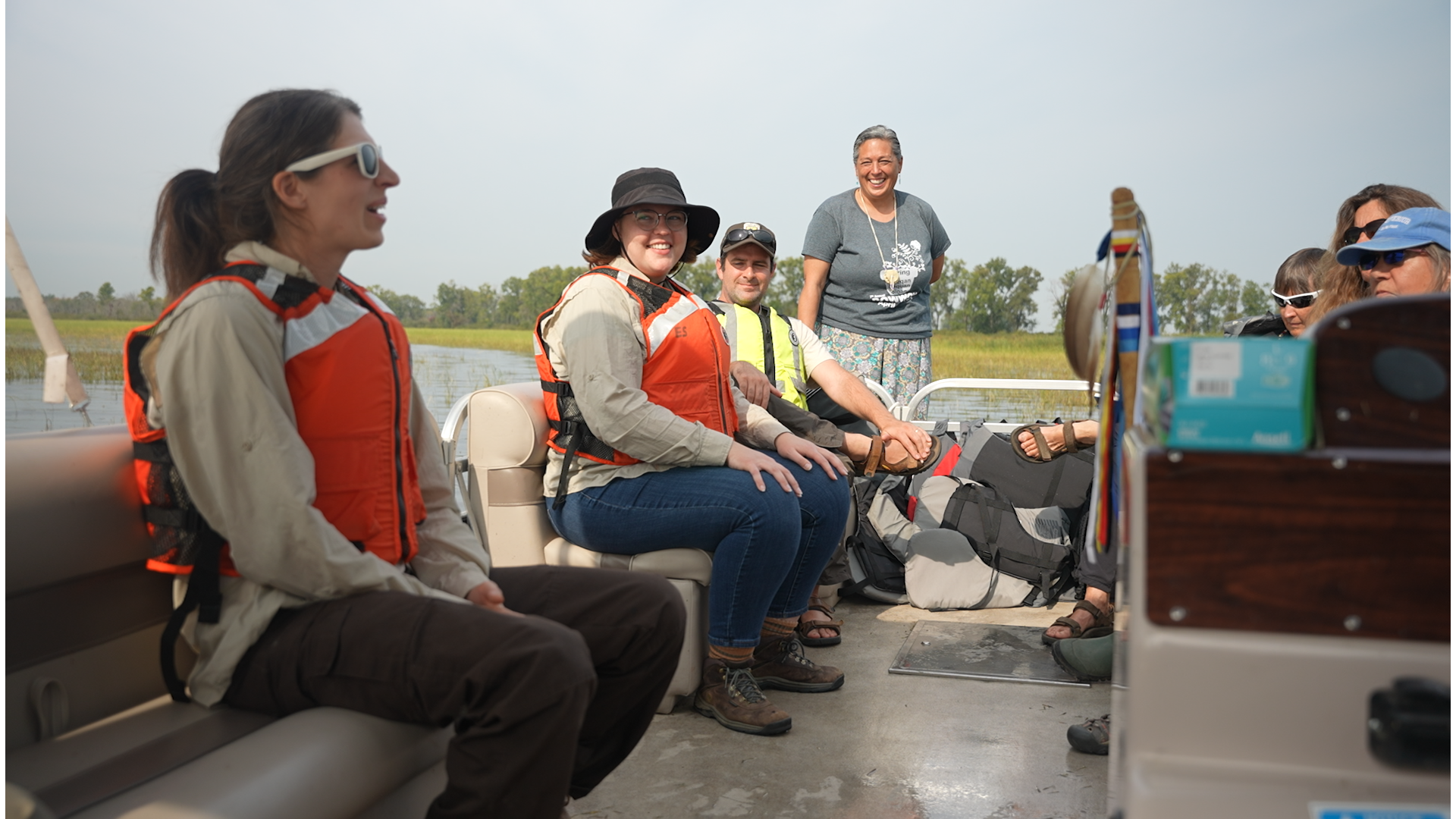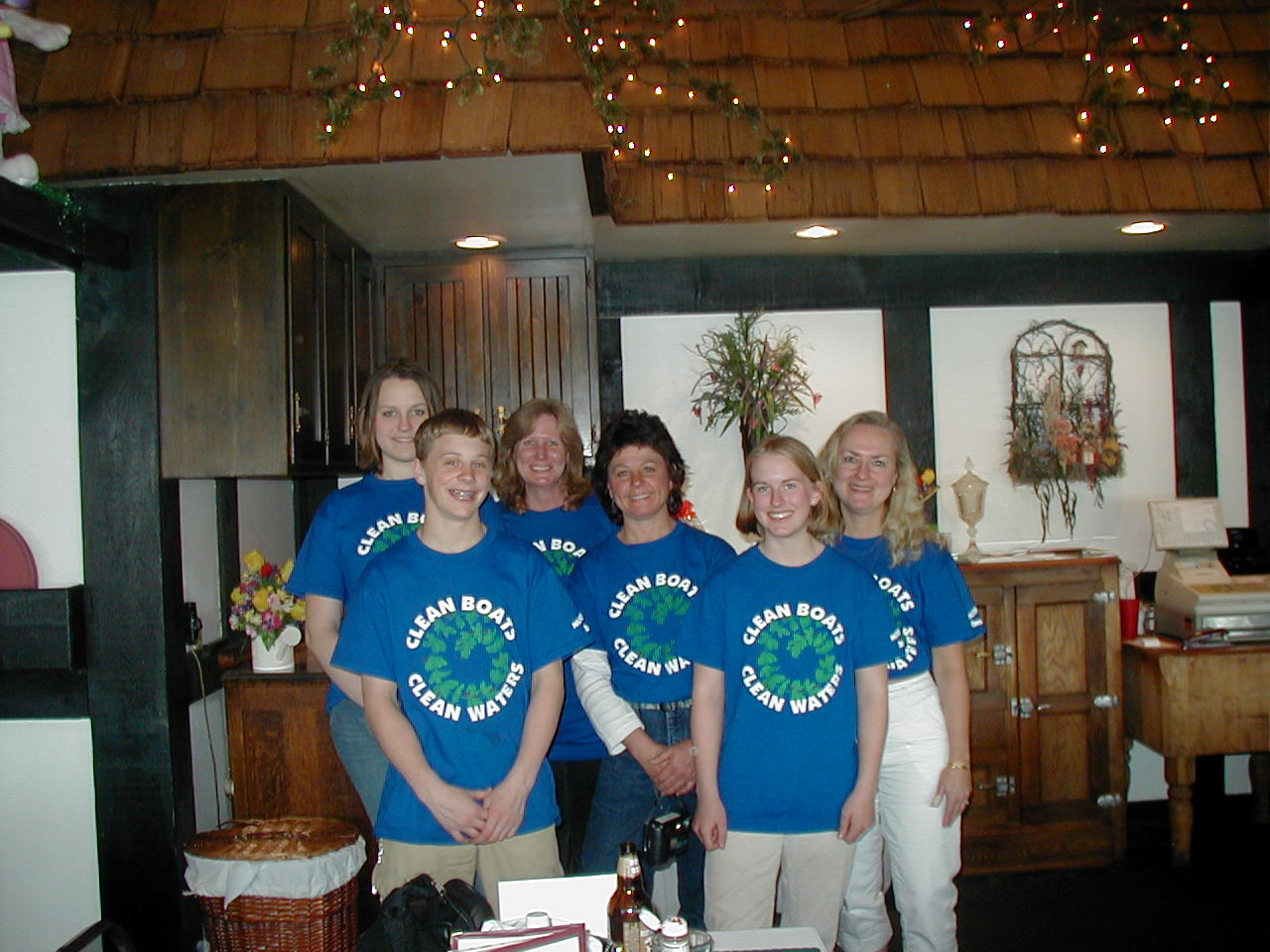When he took the reins, much of the focus was fisheries. Now that he’s letting them go—after heading the University of Wisconsin Sea Grant Institute for a spectacular and defining 21 years—Anders Andren can say the direction and scope of the organization he’s headed has expanded to encompass the entirety of the Great Lakes. And beyond.
In September, Andren, 67, made official his intentions to retire from the position he’s held for the last two-plus decades. He’ll remain as director of UW Sea Grant at least until August of 2012, remaining closely involved in the effort to locate and train his successor.
Andren, who was born and raised in Finland and Sweden, is justifiably proud of the things he’s accomplished during his term. Under his direction, UW Sea Grant enjoyed more successes than waves hitting a Lake Superior beach on a windy fall day: Andren led the effort to reorganize the National Sea Grant College Program (NSGCP) into focused thematic research areas such as fisheries, aquaculture and contaminants, an effort that helped create a clearer identity for the national program. He crafted a research proposal review process that’s been adopted by many other Sea Grant programs. A self-confessed IT junkie, Andren also invested resources early and often in information technology. UW’s was the first Sea Grant program to field its own website (way back on Mosaic, the late-90s dinosaur forerunner to NetScape) and also developed iPro and iPropose, its own in-house programs for researchers to submit and update grant proposals. Despite being among the smaller entities on the UW-Madison campus, UW Sea Grant also maintains its own separate IT infrastructure.
But perhaps the biggest key to Andren’s long-term success has been his ability to build talented coalitions, both inside and outside the organization, both locally and nationally. At the most recent Sea Grant Association meeting in Baltimore, one fellow Sea Grant director dubbed him “a sage.”
Leon Cammen, the current director of the NSGCP, vividly recalls the leadership Andren displayed during the difficult stretch the national program endured in the mid-1990s. At the time, Andren was heading the Sea Grant Association.
“We were in the process of re-organizing, and struggling to maintain our funding levels,” remembered Cammen, who served as UW Sea Grant’s program officer for more than two decades. “He worked with everyone in the network, and brought them all together. That was the start of making us a better place.”
It’s the same type of firm hand Andren showed again in 2001, when he served on the NSGCP’s national committee for allocation of funding. As any program director knows, the distribution of grant dollars is often the minefield that trips up many a research program. Cammen recalled the ways in which Andren was able to balance stakeholder needs without alienating anyone.
“It took some real leadership to navigate those waters,” he said, describing UW Sea Grant as a top-flight science and research program. “Due to Anders, we were able to pull through that and come out with a solution that lasted a decade.”
Researchers agree with Cammen’s assessment.
“Anders was excellent at recruiting the right people for the right job, as well as managing how and who gets funding. He knew the system well enough to juggle it all,” said Jim Kitchell, an UW-Madison emeritus professor of limnology and self-described “old horse” who’s been a recipient of UW Sea Grant research funding since 1974.
Kitchell said he believes that while other programs often focused on research strictly for the sake of publication, UW Sea Grant under Andren was adept at recruiting and maintaining researchers who were interested in research that translated quickly into real-world application.
“He has built and sustained a team spirit that’s both productive and collaborative,” said Kitchell. “He successfully straddled both universes—academics and real-world resource allocation.”
Andren’s earliest affiliation with Sea Grant came in 1975, when he was first recruited to the UW faculty from the Oak Ridge National Laboratory. One of the members of Andren’s interview panel was none other than Bob Ragotzkie, the then-director of UW Sea Grant. During the process, Ragotzkie urged Andren to develop and submit a proposal to UW Sea Grant so he’d have funding ready and waiting for him when he arrived on campus. That proposal—a study of the key role of the atmosphere in delivering toxic substances to the Great Lakes—ended up being one of Andren’s career highlights. It also developed the connection that would re-shape his academic and professional career path.
In 1988, Andren edged closer to Sea Grant, becoming the associate director of the UW’s Water Resources Institute (which at this time was still a separate entity; in 1999, it would merge with the UW Sea Grant Institute to form the UW Aquatic Sciences Center.) It was there that he began to learn about grant administration, one of several skills that would come in handy a few years later, when Ragotzkie approached him again, this time to offer him the position of associate director of UW Sea Grant.
“I thought, you know, this really nailed down the Wisconsin Idea, with a specific focus on the Great Lakes and water issues,” recalled Andren, who fortuitously also holds a Ph.D in chemical oceanography. “It was a neat type of concept and I wanted to be part of it.”
Almost immediately, he began shifting the program’s focus to mirror and respond to new threats facing the Great Lakes.
“When I became involved with Sea Grant, I would venture that about 70-80 percent of the funding went to fisheries—understanding fisheries and perhaps, some work down the food chain to phytoplankton,” said Andren. “This was the time when our awareness of contaminants in nature really blossomed and became a national issue.”
Andren, who had done his Ph.D work on the role of the Mississippi in delivering mercury to the Gulf of Mexico, had spent plenty of his time at ORNL developing and honing analytical techniques to measure contaminants in the environment. That left him well-positioned to build on the framework and research diversification Ragotzkie had created to take advantage of new and emerging topics in the Great Lakes region.
In the late 1980s to the 90s, in what Andren calls a “watershed moment,” UW Sea Grant-funded researchers began looking very heavily at the risks environmental contaminants like mercury, lead, copper and cadmium posed to human populations, especially in the Great Lakes. Their findings led to major remediation efforts and policy changes regarding the measurement and controls of environmental toxins.
Andren’s proud of the environmental impacts UW Sea Grant has effected under his tenure. But it’s not the only thing that makes him smile as he recalls his successful career.
“In terms of my time here, probably one of the most satisfying aspects of that is that we have been able to attract top-notch talent, in administration, outreach, communication and information technology,” said Andren. ”We have probably the best and brightest of all the programs, which is reflected in the fact that we get reviewed very highly every year.”
Andren knows that’s what he’ll miss most–interacting with his co-workers in the UW program and the talented people in the international Sea Grant universe.
“I’ve gotten to know people in every single coastal state and have become really good friends with most of them,” he said. “I can travel to any coastal state in the U.S. and I have a lot of friends there. A lot of these folks are very talented, and you just learn a lot about what’s going on. That has been a real benefit.”
The biggest challenge facing Andren’s successor won’t be a surprise to anyone in the Sea Grant universe—maintaining an adequate level of funding at a time when resources are shrinking almost daily. Under Andren, the program was able to increase its state funding and amass an impressive record of landing targeted national dollars.
Andren will maintain an office on the UW campus and has applied for emeritus status, and hopes to remain active in the Sea Grant universe, whether that means helping other programs review grant applications or composing some proposals of his own. He’s mulling becoming involved in some international eco-philanthropy projects in Africa, Central and South America.
And, now that he’ll have some extra free time, he’s looking forward to pursuing his other passion: music. This talented composer and guitarist—he collects guitars, composes MIDI-based music on his computer and occasionally channels Elvis Presley–still harbors secret aspirations of having his own band. Perhaps he’ll resurrect the Not-So-Muddy Waters Band, a group of musically minded Sea Granters he co-formed with former UW Sea Grant Communications Director Steve Wittman during a Sea Grant Week in Madison.
Whatever life brings his way, he’s ending his Sea Grant tenure with a big smile on his sometimes stoic, Scandinavian face.
“Quite frankly, I’ve always thought this job was one of the best on campus,” said Andren. “You can do research, you can teach, and you can have a strong impact on aquatic sciences in the Great Lakes. We’ve had a really good run at it.”





